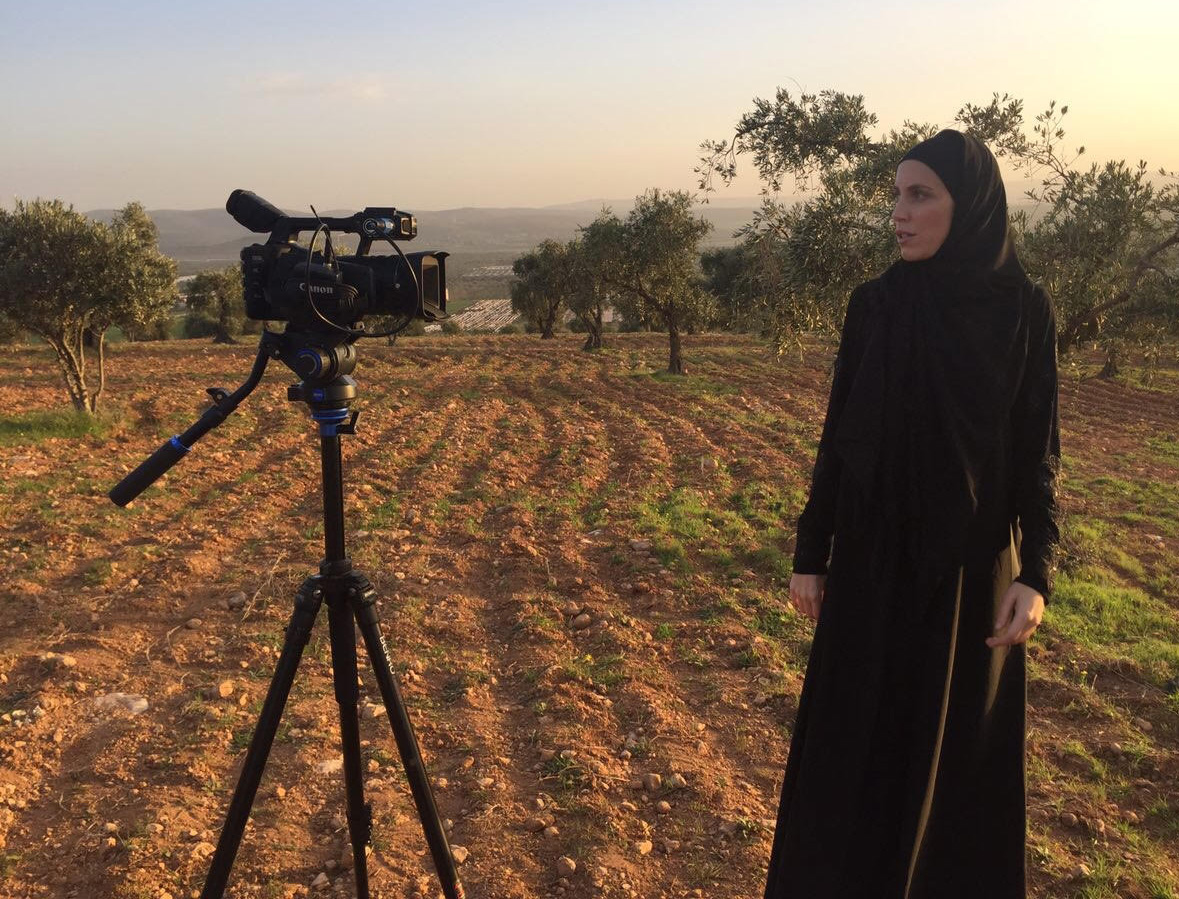Advertisement
Undercover In Syria: CNN's Clarissa Ward On Reporting In Rebel-Held Syria
Syria is the most dangerous country in the world - for its citizens and also for journalists. Yet international correspondent Clarissa Ward has entered Syria more than a dozen times since the civil war began there five years ago, first for CBS News and now for CNN - more than any other Western television reporter.
Ward traveled to Syria again just a few weeks ago, going undercover to rebel-held regions in the north. She tells Here & Now's Robin Young about witnessing an airstrike shortly after arriving in the country and "the hell" Syrians continue to live through since the war began.
Interview Highlights: Clarissa Ward
On the Russian involvement in Syria
“We know that there are two players in the skies in this particular area. You have the air force of the regime of Bashar al-Assad and then you have the Russian air force. Now, I have been witnessing the regime bombardment for many years. It’s typically been quite crude, you’re looking at homemade barrel bombs being dumped out of the back of helicopters. With the Russian involvement, I would say there is evidence of a much heavier, much more sophisticated type of weaponry being used.”
“If you look at a report from 2015, Doctors Without Borders looked specifically at the issue of medical facilities being targeted in rebel-held areas. They found that 82 medical facilities were hit over 2015, and when you look at the breakdown of every month, there’s a massive spike in the month of October, which is just after the Russian military intervention began. We have put this to the Russian ministry of defense. They have repeatedly said, ‘We don’t target civilian infrastructure, we’ve never killed civilians.’ But I can tell you, Robin, there’s absolutely no ISIS presence in any of the areas in which I spent time, so something doesn’t add up.”
Advertisement
On the horrors she witnessed on the ground
“What was so shocking to me was just how quickly you realized what hell the Syrian people have been living through now for five years, and how that hell became even worse when the Russian military intervention began in September of last year. We were on the ground for less than 24 hours before we heard fighter jets buzzing overhead and I can tell you from experience that there is a sickening pit that forms in your stomach when you hear the sound of those fighter jets because you know that bombs are soon going to fall, but you don’t know where exactly they are going to fall, and you don’t know what you can do to try to protect yourself. You have this acute sense of being so small, and so vulnerable, and so powerless. … It’s just so difficult to try to understand how people have the strength, and the steadfastness and the courage to remain in these areas when they know the risks, when they know the horror, when they’ve experienced the trauma.”
Whether she believes Syria will be able to recover
“It’s really hard for me to imagine how Syria could once again be a single contiguous state, multi-ethnic, multi-sectarian. The fabric of Syrian society has been ripped apart. And while you still see pockets of the Syrian spirit and the Syrian hospitality and the Syrian grace and humor that those of us who have spent time there have come to know and love, you also see a bitterness and a brutality and a cynicism that have naturally crept in as a result of many, many years of conflict. And you also see the growing sway of more radical militant groups on the ground.”

Guest
- Clarissa Ward, senior international correspondent at CNN. She tweets @clarissaward.
This segment aired on March 18, 2016.